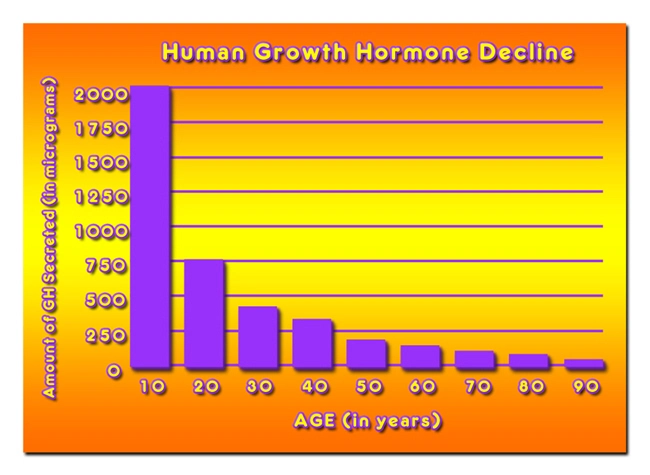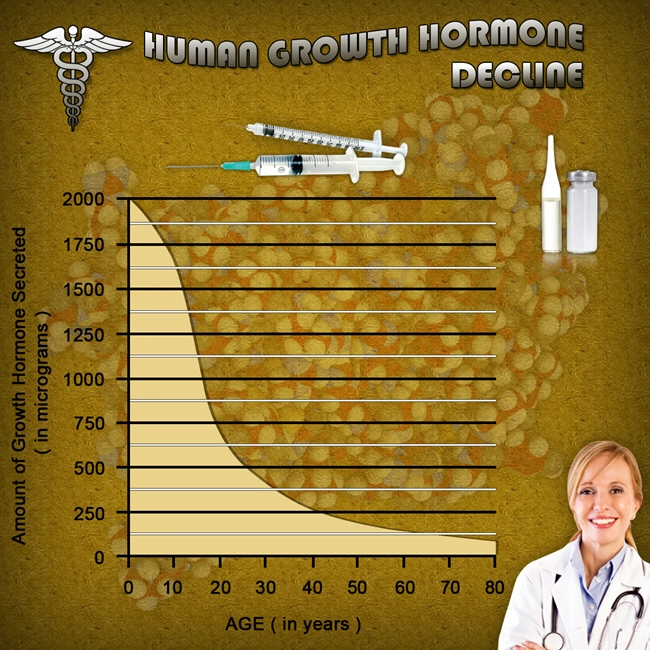
Introduction
Urological health plays a pivotal role in the overall well-being of men, yet its impact on social interactions and quality of life is often overlooked. In the United States, where societal expectations and health awareness can significantly influence men's lives, understanding the relationship between urological health and social well-being is crucial. This article delves into how urological conditions affect American men's social lives and underscores the importance of addressing these issues proactively.
The Prevalence of Urological Conditions
Urological disorders, ranging from benign prostatic hyperplasia (BPH) to erectile dysfunction (ED) and urinary tract infections, are common among American men. According to the American Urological Association, over half of men in their 60s and up to 90% of those in their 70s and 80s experience BPH. Similarly, ED affects about 30 million men in the U.S., with the prevalence increasing with age. These conditions not only cause physical discomfort but also have profound psychological and social repercussions.
Impact on Social Well-being
Urological health issues can significantly impair a man's social well-being. Men with conditions like ED often report feelings of embarrassment, anxiety, and a diminished sense of masculinity, which can lead to social withdrawal and strained relationships. Similarly, frequent urination due to BPH can disrupt social activities, leading to frustration and isolation. The fear of urinary incontinence or the need to frequently excuse oneself from social gatherings can make men feel self-conscious and reluctant to participate in social events.
Psychological Effects
The psychological impact of urological conditions cannot be overstated. Men may experience depression, anxiety, and a decreased quality of life due to their health issues. These mental health challenges can further exacerbate social isolation, creating a vicious cycle that affects both their mental and social well-being. The stigma associated with discussing urological health openly can prevent men from seeking help, thus prolonging their suffering and social disengagement.
The Role of Healthcare Providers
Healthcare providers play a critical role in mitigating the social impact of urological conditions. By fostering open communication, providing education about the conditions, and offering effective treatment options, physicians can help men manage their symptoms and improve their quality of life. Encouraging men to discuss their concerns without fear of judgment can lead to earlier intervention and better outcomes, both medically and socially.
Societal Attitudes and Awareness
Societal attitudes towards urological health also play a significant role in men's social well-being. Increased awareness and destigmatization of these conditions can encourage men to seek timely medical care and support. Public health campaigns and community support groups can provide valuable resources and foster a supportive environment where men feel comfortable discussing their health issues.
Strategies for Improvement
To enhance men's social well-being in relation to urological health, several strategies can be implemented. First, increasing public awareness through educational programs can help demystify these conditions and encourage men to seek help. Second, integrating mental health support into urological care can address the psychological aspects of these conditions. Finally, promoting regular health check-ups and screenings can lead to early detection and management of urological issues, thereby reducing their social impact.
Conclusion
Urological health is intrinsically linked to the social well-being of American men. Conditions such as BPH and ED not only affect physical health but also have significant psychological and social consequences. By increasing awareness, improving access to care, and fostering a supportive environment, we can help men manage their urological health and enhance their social lives. It is imperative for healthcare providers, policymakers, and society as a whole to address these issues comprehensively to improve the overall well-being of men in the United States.
Contact Us Today For A Free Consultation
Dear Patient,
Once you have completing the above contact form, for security purposes and confirmation, please confirm your information by calling us.
Please call now: 1-800-380-5339.
Welcoming You To Our Clinic, Professor Tom Henderson.

- Urological Health Guide: Understanding Conditions and Enhancing Wellness in American Men [Last Updated On: March 3rd, 2025] [Originally Added On: March 3rd, 2025]
- Preventing Urological Infections: Hydration, Hygiene, and Health Strategies for American Males [Last Updated On: March 16th, 2025] [Originally Added On: March 16th, 2025]
- Heart Health and Urology: Vital Connections in American Men's Well-being [Last Updated On: March 18th, 2025] [Originally Added On: March 18th, 2025]
- Urological Health and Fertility: Key Conditions, Diagnosis, and Treatment for American Males [Last Updated On: March 19th, 2025] [Originally Added On: March 19th, 2025]
- Urological Health Tips for American Men in the Workplace [Last Updated On: March 19th, 2025] [Originally Added On: March 19th, 2025]
- Genetics and Urological Health: Insights for American Men's Proactive Care [Last Updated On: March 19th, 2025] [Originally Added On: March 19th, 2025]
- Managing Urological Pain in Men: Causes, Diagnosis, and Treatment Strategies [Last Updated On: March 19th, 2025] [Originally Added On: March 19th, 2025]
- Urological Health Guide: Symptoms, Conditions, and Care for American Men [Last Updated On: March 19th, 2025] [Originally Added On: March 19th, 2025]
- Modern Urology Advances: Minimally Invasive, Personalized Care for American Males [Last Updated On: March 20th, 2025] [Originally Added On: March 20th, 2025]
- Smoking's Profound Impact on Urological Health in American Men: Risks and Cessation Benefits [Last Updated On: March 21st, 2025] [Originally Added On: March 21st, 2025]
- Urological Health and Insurance: Navigating Coverage for Men's Well-being [Last Updated On: March 21st, 2025] [Originally Added On: March 21st, 2025]
- Obesity's Impact on Urological Health in American Men: Risks and Management Strategies [Last Updated On: March 22nd, 2025] [Originally Added On: March 22nd, 2025]
- Exercise and Urological Health: Enhancing Wellness in American Men [Last Updated On: March 22nd, 2025] [Originally Added On: March 22nd, 2025]
- Hydration's Crucial Role in Urological Health for American Men: Tips and Insights [Last Updated On: March 22nd, 2025] [Originally Added On: March 22nd, 2025]
- Stress and Urological Health in American Males: Impacts and Management Strategies [Last Updated On: March 22nd, 2025] [Originally Added On: March 22nd, 2025]
- Urological Health Education: Vital for American Males' Well-being and Longevity [Last Updated On: March 23rd, 2025] [Originally Added On: March 23rd, 2025]
- Supplements Supporting Urological Health in American Men: Saw Palmetto, Beta-Sitosterol, Cranberry [Last Updated On: March 23rd, 2025] [Originally Added On: March 23rd, 2025]
- Urological Rehabilitation: Enhancing American Men's Health and Quality of Life [Last Updated On: March 23rd, 2025] [Originally Added On: March 23rd, 2025]
- Urological Health: Key to Successful Family Planning for American Males [Last Updated On: March 23rd, 2025] [Originally Added On: March 23rd, 2025]
- Urological Health in Sports: Risks, Prevention, and Management for Male Athletes [Last Updated On: March 23rd, 2025] [Originally Added On: March 23rd, 2025]
- Urological Health Guide for American Males: Conditions, Procedures, and Prevention [Last Updated On: March 23rd, 2025] [Originally Added On: March 23rd, 2025]
- Urological Health and Sleep: A Comprehensive Guide for American Men [Last Updated On: March 24th, 2025] [Originally Added On: March 24th, 2025]
- VA's Comprehensive Urological Care for American Male Veterans: Services and Support [Last Updated On: March 24th, 2025] [Originally Added On: March 24th, 2025]
- Urological Surgery Recovery Guide for American Males: Holistic Care and Tips [Last Updated On: March 24th, 2025] [Originally Added On: March 24th, 2025]
- Urological Health and Mental Well-being: A Holistic Approach for American Men [Last Updated On: March 24th, 2025] [Originally Added On: March 24th, 2025]
- Urological Health: Vital Preventive Care for American Men's Well-being [Last Updated On: March 25th, 2025] [Originally Added On: March 25th, 2025]
- Urological Health for American Males: Hygiene, Habits, and Holistic Care [Last Updated On: March 25th, 2025] [Originally Added On: March 25th, 2025]
- Urological Health: Importance of Early Detection and Screening for Young American Males [Last Updated On: March 25th, 2025] [Originally Added On: March 25th, 2025]
- Urological Health and Mental Well-being: A Holistic Approach for American Men [Last Updated On: March 25th, 2025] [Originally Added On: March 25th, 2025]
- Urological Health: Breaking Stigma and Addressing Psychological Impacts in American Males [Last Updated On: March 25th, 2025] [Originally Added On: March 25th, 2025]
- Urological Cancers in American Males: Risks, Detection, and Prevention Strategies [Last Updated On: March 26th, 2025] [Originally Added On: March 26th, 2025]
- Urological Health Strategies for American Men Over 50: Screening, Lifestyle, and Management [Last Updated On: March 26th, 2025] [Originally Added On: March 26th, 2025]
- Medications' Impact on Urological Health: Guidance for American Men [Last Updated On: March 26th, 2025] [Originally Added On: March 26th, 2025]
- Urological Health Essentials for American Males: Conditions, Screenings, and Lifestyle Impact [Last Updated On: March 26th, 2025] [Originally Added On: March 26th, 2025]
- Urological Health's Impact on American Men's Social Lives and Well-being [Last Updated On: March 26th, 2025] [Originally Added On: March 26th, 2025]
- Urological Health: Key to Longevity for American Men [Last Updated On: March 26th, 2025] [Originally Added On: March 26th, 2025]
- Managing Urological Health: Essential Travel Tips for American Men [Last Updated On: March 26th, 2025] [Originally Added On: March 26th, 2025]
- Technological Advances Revolutionizing Urological Diagnosis for American Males [Last Updated On: March 26th, 2025] [Originally Added On: March 26th, 2025]
- Dietary Guide for Enhancing Urological Health in American Men [Last Updated On: March 27th, 2025] [Originally Added On: March 27th, 2025]
- Environmental Impacts on Urological Health in American Males: Risks and Mitigation Strategies [Last Updated On: March 27th, 2025] [Originally Added On: March 27th, 2025]
- Managing Urological Health and Chronic Illness in American Men: Practical Strategies [Last Updated On: March 27th, 2025] [Originally Added On: March 27th, 2025]
- Urological Health Myths Debunked: Empowering American Men with Facts [Last Updated On: March 27th, 2025] [Originally Added On: March 27th, 2025]
- Exercise and Urological Health: Safe Practices for American Males [Last Updated On: March 27th, 2025] [Originally Added On: March 27th, 2025]
- Alcohol's Impact on Urological Health: Risks and Prevention for American Men [Last Updated On: March 27th, 2025] [Originally Added On: March 27th, 2025]
- Urological and Bone Health: A Vital Connection for American Males [Last Updated On: March 27th, 2025] [Originally Added On: March 27th, 2025]
- Urological Health and Immunity: Strategies for American Males [Last Updated On: March 28th, 2025] [Originally Added On: March 28th, 2025]
- Urological Health in U.S. Men's Campaigns: Importance, Barriers, and Strategies [Last Updated On: March 28th, 2025] [Originally Added On: March 28th, 2025]
- Urological Health and Skin Care: A Vital Connection for American Men [Last Updated On: March 28th, 2025] [Originally Added On: March 28th, 2025]
- Urological Health's Impact on American Men's Quality of Life: A Comprehensive Overview [Last Updated On: March 29th, 2025] [Originally Added On: March 29th, 2025]
- Urological Health Linked to Hearing Loss in American Males: Insights and Prevention [Last Updated On: March 29th, 2025] [Originally Added On: March 29th, 2025]
- Urological Health and Vision: Critical Connections for American Men's Well-being [Last Updated On: March 30th, 2025] [Originally Added On: March 30th, 2025]
- Urological Health: Empowering American Men's Sexual Wellness Through Education and Care [Last Updated On: March 30th, 2025] [Originally Added On: March 30th, 2025]
- Urological Health: Vital for Men's Well-being and Advocacy in the U.S. [Last Updated On: April 3rd, 2025] [Originally Added On: April 3rd, 2025]
- Urological Health Linked to Dental Care: Insights for American Men [Last Updated On: April 3rd, 2025] [Originally Added On: April 3rd, 2025]
- Urological and Respiratory Health Interplay in American Males: Impacts and Management [Last Updated On: April 3rd, 2025] [Originally Added On: April 3rd, 2025]
- Urological Health in American Men: Research, Impact, and Lifestyle Factors [Last Updated On: April 5th, 2025] [Originally Added On: April 5th, 2025]
- Urological Health: Impact, Policy Needs, and Advocacy for Men's Well-being [Last Updated On: April 7th, 2025] [Originally Added On: April 7th, 2025]
- Urological Health Education: Vital for American Men's Well-being and Proactive Care [Last Updated On: April 7th, 2025] [Originally Added On: April 7th, 2025]
- Urological Health's Impact on American Men's Careers: Proactive Management and Workplace Support [Last Updated On: April 8th, 2025] [Originally Added On: April 8th, 2025]
- Urological and Musculoskeletal Health: Vital Connections for American Men [Last Updated On: April 9th, 2025] [Originally Added On: April 9th, 2025]
- Urological and Neurological Health Nexus: Essential Insights for American Males [Last Updated On: April 9th, 2025] [Originally Added On: April 9th, 2025]
- Urological and Endocrine Health: A Vital Connection for American Males [Last Updated On: April 9th, 2025] [Originally Added On: April 9th, 2025]
- Urological and Digestive Health: Interconnected Systems and Holistic Care for American Males [Last Updated On: April 10th, 2025] [Originally Added On: April 10th, 2025]
- Integrating Urological Health into Men's Programs: Needs and Benefits for American Males [Last Updated On: April 11th, 2025] [Originally Added On: April 11th, 2025]
- Urological Health: Vital for American Men's Well-being and Longevity [Last Updated On: April 12th, 2025] [Originally Added On: April 12th, 2025]
- Urological Health's Impact on American Men and Family Dynamics [Last Updated On: April 12th, 2025] [Originally Added On: April 12th, 2025]
- Urological Health and Reproductive Wellness in American Men: A Comprehensive Guide [Last Updated On: April 12th, 2025] [Originally Added On: April 12th, 2025]
- Urological and Cardiovascular Health: Vital Connections and Preventive Strategies for American Males [Last Updated On: April 13th, 2025] [Originally Added On: April 13th, 2025]
- Urological Health: A Vital Component of Men's Wellness Initiatives in the U.S. [Last Updated On: April 15th, 2025] [Originally Added On: April 15th, 2025]
- Urological Health and Community Engagement: Impact and Management in American Men [Last Updated On: April 15th, 2025] [Originally Added On: April 15th, 2025]
- Urological Health Education: Empowering American Men Through Knowledge and Advocacy [Last Updated On: April 15th, 2025] [Originally Added On: April 15th, 2025]
- Immune System's Crucial Role in Urological Health for American Males [Last Updated On: April 16th, 2025] [Originally Added On: April 16th, 2025]
- Urological Health's Impact on Mental Well-being in American Males [Last Updated On: April 18th, 2025] [Originally Added On: April 18th, 2025]
- Urological Health's Vital Role in American Males' Physical Well-being [Last Updated On: April 18th, 2025] [Originally Added On: April 18th, 2025]
- Urological Health: Essential Guide for American Men's Well-being and Prevention [Last Updated On: April 18th, 2025] [Originally Added On: April 18th, 2025]
- Urological Health: Vital for Men's Well-being and Quality of Life in the U.S. [Last Updated On: April 19th, 2025] [Originally Added On: April 19th, 2025]
- Urological Health and Emotional Well-being: A Holistic Approach for American Men [Last Updated On: April 20th, 2025] [Originally Added On: April 20th, 2025]









